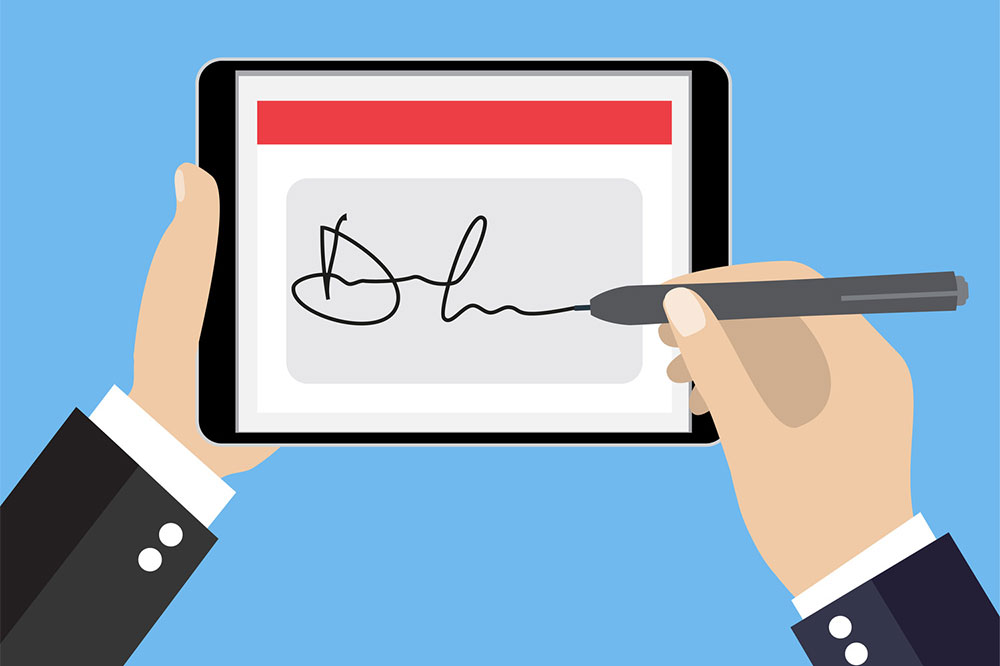Comprehensive Overview of Digital Signature Software and Its Impact on Modern Business
Digital signature software is revolutionizing how businesses and individuals sign and manage documents electronically. It simplifies workflows, enhances security, and ensures legal compliance. This comprehensive guide explores the benefits, applications, and future of digital signatures, emphasizing their crucial role in modern digital operations, legal standards, and sustainability efforts across various industries.

Comprehensive Overview of Digital Signature Software and Its Impact on Modern Business
In today's rapidly evolving digital landscape, the way organizations handle documents, approvals, and authentication processes is undergoing a significant transformation. Remote work, digital workflows, and the need for efficiency have propelled the adoption of digital signature software, a technology that is reshaping how we sign, verify, and manage electronic documents. Traditional methods—printing documents, signing by hand, scanning, and emailing—are now being replaced by more secure, faster, and environmentally friendly digital solutions.
Understanding what digital signature software entails is crucial for businesses and individuals aiming to streamline their operations. Essentially, digital signature software is a specialized platform that allows users to sign documents electronically in a manner that is both legally compliant and highly secure. These platforms use encryption, authentication protocols, and audit trails to ensure that the signed documents are authentic and tamper-proof. Whether you are signing a simple agreement or a complex legal contract, digital signature software simplifies the process while maintaining the integrity and validity of your signatures.
The core of digital signature technology revolves around electronically capturing a signer’s intent to agree to a document’s terms. This can be achieved through various means—such as drawing a stylized signature, typing a name, or even using biometric verification for enhanced security. These signatures are then encrypted and associated with the document, creating a secure that can be verified later if needed. Beyond just signing documents, these platforms often provide features for tracking signature status, sending reminders, and managing multiple signatures simultaneously, making them invaluable tools for dynamic business environments.
What makes digital signature software particularly appealing is its broad range of applications and its adaptability across various industries. For individuals, it might mean signing personal agreements or authorizations from the comfort of home. For organizations—ranging from small startups to large corporations—these tools accelerate workflows, reduce paper consumption, and support compliance with legal and regulatory standards. For example, legal firms use digital signatures to expedite case preparations, healthcare providers authenticate patient records securely, and real estate agencies streamline property transactions across regions. The versatility of these tools demonstrates their importance in modern digital ecosystems.
Legally speaking, digital signatures have gained widespread recognition around the world. Laws such as the ESIGN Act in the United States and the eIDAS regulation in Europe establish clear guidelines that validate electronic signatures as legally binding. This means that businesses and individuals can rely on digital signatures in court to prove agreement or consent, just as they would traditional handwritten signatures. The use of cryptographic techniques ensures that signatures are tamper-evident, providing legal assurance that the signed document has not been altered since signing. Consequently, digital signature software not only improves efficiency but also fortifies legal credibility in digital transactions.
Benefits of implementing digital signature solutions extend beyond legality and efficiency. They promote sustainability by reducing paper waste and lowering energy consumption associated with printing and mailing physical documents. Additionally, these platforms enhance security by incorporating multi-factor authentication, secure storage, and detailed audit trails that record every action taken during the signing process. This transparency fosters trust among parties involved in the transaction, whether remote or local.
The future of digital signature software is promising, with ongoing innovations incorporating blockchain technology, artificial intelligence, and biometric verification to further enhance security and usability. As more organizations transition to digital workflows, the demand for robust, compliant, and user-friendly signature solutions is set to grow exponentially.
In summary, digital signature software is a cornerstone technology in today’s digital economy. It enables fast, secure, and legally valid document signing across industries and geographies. By adopting these tools, organizations not only improve operational efficiency but also contribute to environmentally sustainable practices and strengthen their compliance posture. As digital transformation continues, mastering digital signature solutions will be essential for staying competitive and ensuring smooth, trustworthy transactions.





